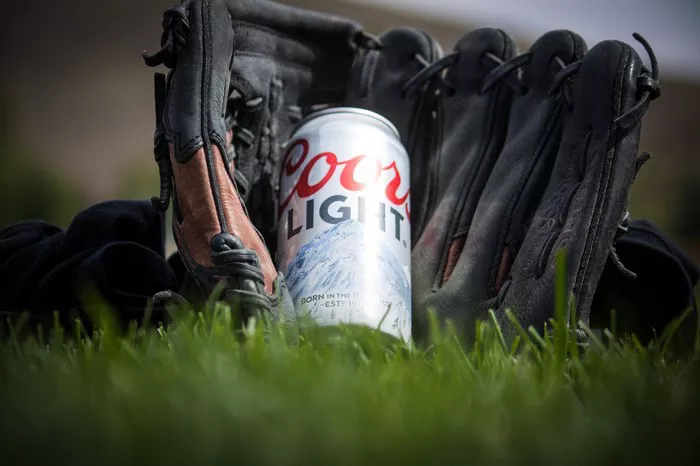In the realm of post-workout recovery, opinions vary widely on the effectiveness of different beverages. The question that often arises is, “Is beer good for you after a workout?” This query intrigues fitness enthusiasts and casual gym-goers alike. While some argue that the idea of consuming beer post-exercise is counterproductive due to its alcohol content, others propose that beer might possess surprising benefits that aid recovery. To dissect this topic comprehensively, it’s crucial to examine the potential pros and cons of indulging in a cold brew after hitting the gym.
For decades, conventional wisdom has stressed the importance of rehydrating the body post-exercise. Amid this narrative, beer might seem an unlikely choice for rehydration. However, recent studies delve into the beverage’s composition to determine its potential benefits after physical activity. The key to understanding the question, “Is beer good for you after a workout?” lies in dissecting beer’s components and their effects on the body’s recovery process.
One of the primary concerns surrounding beer consumption after a workout is its alcohol content. Alcohol is known to have dehydrating effects on the body, potentially impeding the rehydration process crucial after physical exertion. However, the alcohol concentration in beer is relatively low compared to spirits or other alcoholic beverages. This lower alcohol content might not have as significant an impact on hydration as presumed. Moderation, as with any consumable, is essential, especially post-exercise when the body requires adequate hydration for optimal recovery.
Beyond alcohol, beer comprises carbohydrates, which are fundamental for replenishing glycogen stores depleted during exercise. These carbohydrates aid in restoring energy levels, which can be advantageous after an intense workout. Additionally, some beers contain electrolytes like sodium and potassium, aiding in rehydration by replenishing those lost through sweat during exercise. Thus, while the alcohol content in beer might pose challenges to hydration, its carbohydrate and electrolyte content could contribute positively to post-exercise recovery.
Athletes and fitness enthusiasts often rely on protein to repair and build muscle post-workout. Surprisingly, certain types of beer, particularly craft beers, contain hops and barley, which offer small amounts of protein. While the protein content in beer is minimal compared to dedicated protein sources, the presence of these elements could potentially contribute to muscle recovery and repair when consumed in moderation after exercise.
The Timing Factor: When to Consider a Post-Workout Beer
Understanding the ideal timing for consuming a beer after a workout is crucial when contemplating its effects on recovery. Experts suggest that the body’s ability to absorb nutrients is heightened within the first 30–60 minutes after exercise, commonly referred to as the “anabolic window.” During this period, the body is primed to absorb nutrients efficiently, making it an opportune time to consume substances that aid in recovery, including carbohydrates and protein.
In this context, having a beer immediately after a workout might not align with maximizing recovery. The body’s immediate need for hydration and nutrient replenishment suggests that consuming water or a beverage specifically designed for post-exercise recovery would be more beneficial during this critical period.
However, waiting a bit longer before enjoying a beer could be an option. After the initial hour following a workout, the body continues to recover, and this is when the potential benefits of the carbohydrates and other nutrients in beer might become more relevant without interrupting the immediate recovery process.
Moreover, considering individual fitness goals and the intensity of the workout is crucial when contemplating the consumption of beer post-exercise. For instance, after a moderate workout, where dehydration and glycogen depletion might not be as severe, enjoying a beer later on may have less impact on recovery than after a highly strenuous session.
Potential Drawbacks and Considerations
While exploring whether beer is good for you after a workout, it’s essential to acknowledge potential drawbacks and considerations associated with its consumption. One prominent concern is the calorie content of beer. Most beers contain calories derived from both alcohol and carbohydrates, which, when consumed excessively, can contribute to weight gain or hinder weight loss efforts, especially if they exceed the calories burned during the workout.
Furthermore, the diuretic effect of alcohol might exacerbate dehydration if consumed in large quantities. Dehydration can impede muscle recovery and hinder the body’s ability to repair itself post-exercise. Hence, balancing beer consumption with adequate water intake becomes crucial to mitigate the risk of dehydration after a workout.
Alcohol also impacts sleep quality, and disrupted sleep patterns can interfere with the body’s recovery process. Consuming beer close to bedtime after a workout might interfere with the body’s ability to enter restorative sleep cycles, thereby hindering recovery.
Additionally, individual tolerance to alcohol varies, and some individuals might experience adverse effects such as gastrointestinal discomfort or inflammation, potentially offsetting the benefits that beer could offer post-exercise.
Conclusion: Balancing Pleasure and Performance
In conclusion, the question, “Is beer good for you after a workout?” does not yield a definitive yes or no answer. The potential benefits of beer, such as its carbohydrate content, electrolytes, and even minimal protein, could contribute positively to post-exercise recovery when consumed in moderation and at an appropriate time. However, the drawbacks associated with alcohol, including dehydration, disrupted sleep, and calorie intake, should not be overlooked.
Individual fitness goals, workout intensity, and personal tolerance to alcohol play pivotal roles in determining whether incorporating beer into a post-workout routine aligns with one’s overall health and fitness objectives. For those seeking optimal recovery and performance, prioritizing hydration with water or specialized recovery beverages immediately after exercise might be more beneficial. However, for individuals who can balance moderation and understand their body’s response to alcohol, enjoying a beer occasionally after a workout may not significantly impede their fitness goals.
Ultimately, achieving a balance between pleasure and performance requires a nuanced approach. Being mindful of one’s consumption, understanding the body’s needs post-exercise, and making informed decisions based on individual circumstances are integral to maximizing the benefits and minimizing the potential drawbacks of enjoying a beer after a workout.


